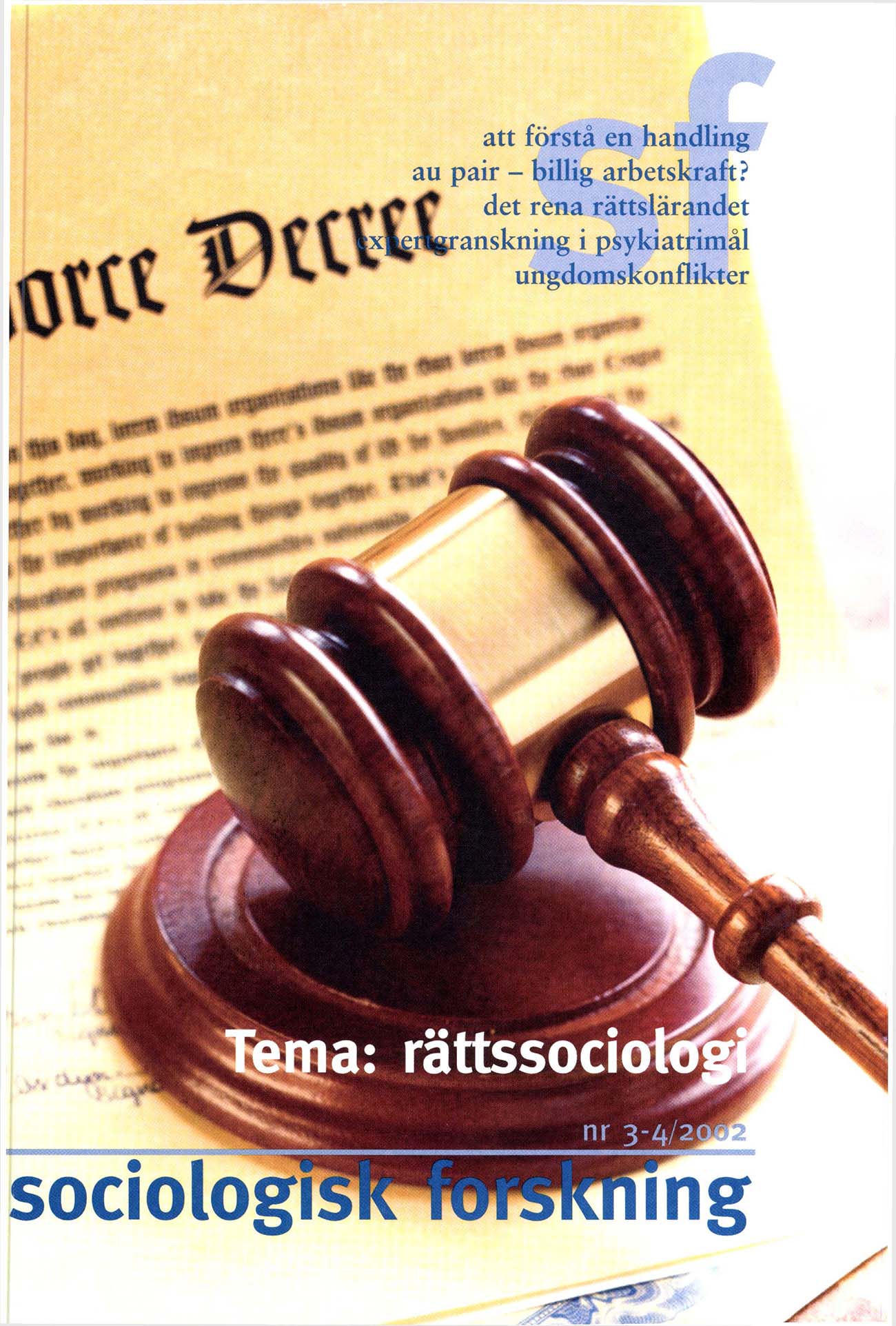Det rena rättslärandet
kognitiva funktioner i ett normativt system
DOI:
https://doi.org/10.37062/sf.39.19441Nyckelord:
legal learning, legal change, systems theory, positive lawAbstract
Pure legal learning: cognitive functions in a normative system
Norms are the obvious foundation for most of legal sociology and jurisprudence. Norms can be defined as counterfactual expectations, expectations that do not change even when counter-evidence of reality is presented. Thus learning is counter to our intuition of law. However, law does change, and some of the changes can be described as learning. Law changes by political decisions when the legislator acts, it can change incrementally when the judge makes a decision, it changes when new practices become binding, and it changes when doctrine is developed in legal science. If we differentiate between learning within a worldview and a learning that changes world-views, most cases of legal change can be interpreted as decision-making within a world-view, not the development of one. In this article, the author develops a conceptual frame of reference, in terms of pure legal learning, for a specific type of legal change. Pure legal learning denotes a learning process, which is not merely a change within a world-view, but a change in the legal world-views themselves. This is therefore the process where degrees of freedom for legal change are defined.
Downloads
Publicerad
Referera så här
Nummer
Sektion
Licens
Allt material i Sociologisk Forskning publiceras med omedelbar öppen tillgång (open access), under Creative Commons-licensen CC BY-NC-ND 4.0.
Allt innehåll i tidskriften är fritt tillgängligt utan kostnad och får för icke-kommersiella syften fritt läsas, laddas ned, kopieras, delas, skrivas ut och länkas. Innehållet får dock inte ändras. När innehållet används måste författare och källa anges. Upphovsrätten till innehållet tillhör respektive författare. Inga publiceringsavgifter tas ut.





